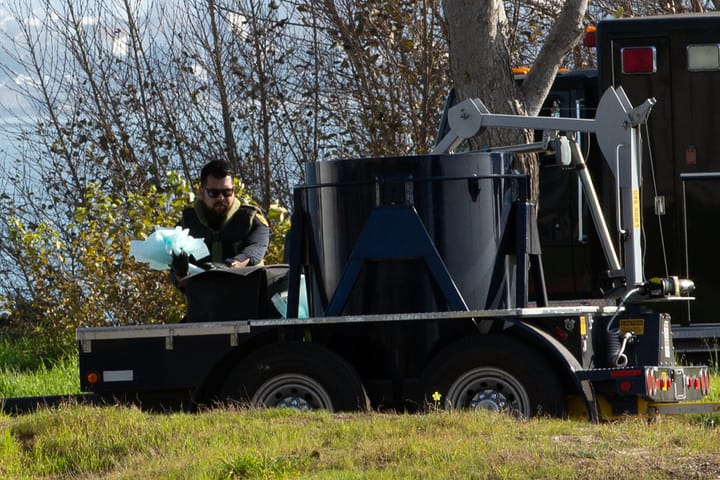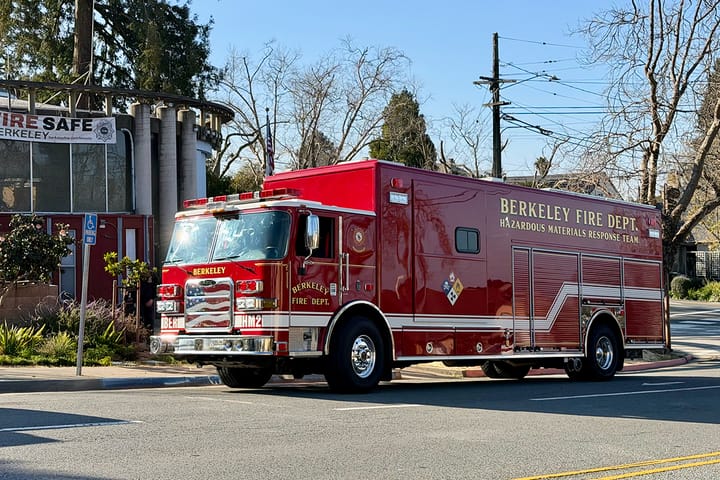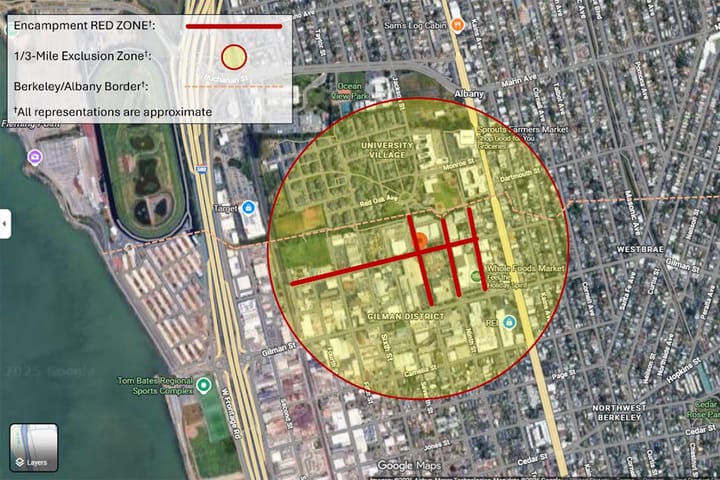Berkeley to close homeless camp by giving street to Bayer
Citing public safety concerns, including repeated fires, Bayer said it plans to close the street to the public and build a stormwater treatment feature.

Berkeley officials voted Tuesday night to give a dead-end street to one of the city's largest taxpayers in response to concerns about a sprawling homeless encampment there.
Bayer, which already owns the property on both sides of the block, said it plans to build a stormwater treatment feature on Carleton Street west of Seventh Street where the camp is now located.
Tuesday night, a Bayer spokeswoman said there had been "multiple fires" in the area and that quality control workers had reported smoke in their building nearby.
"There has been a serious fire risk to our properties because of what's going on in that location," Jennifer Cogley, the Bayer rep, told the Berkeley City Council.
Workers at Bayer's 46-acre Berkeley campus make medicine for people in 50 countries, she said.
During public comment, more than a dozen other speakers, including residents of the Carleton Street encampment, urged the city to find a solution that didn't include "sweeps" and camp closures.
Amber Whitson, who has lived on Berkeley streets for decades, has been advocating for a sanctioned camp site in Berkeley — and soon.
"Berkeley is herding its unhoused constituents into shrinking overcrowded corners of the city. Nearly all of us lack access to 24-hour bathrooms or dumpsters," she told officials. "A public health crisis isn't just possible. It's inevitable if this continues."
Whitson said the city seemed to be "passing the buck — by giving that property, that has a large unhoused population on it, to Bayer."
Other speakers asked for more compassion, stability and support for unhoused residents, saying the city had ramped up efforts to enforce rules since the closure of a large encampment at Ohlone Park earlier this month, including posting signs to warn people that they can't store private property in public.
In the last fiscal year, Berkeley spent more than $30 million on its efforts to tackle homelessness, the city said in May.
Gordon Gilmore, of the Berkeley Homeless Union, said unhoused residents are now "under constant threat of having their belongings taken from them if they move away from their tents."
Gilmore noted that people have "found safety" on Carleton Street "because it's one of the few places that's out of the public right-of-way and simultaneously public property."
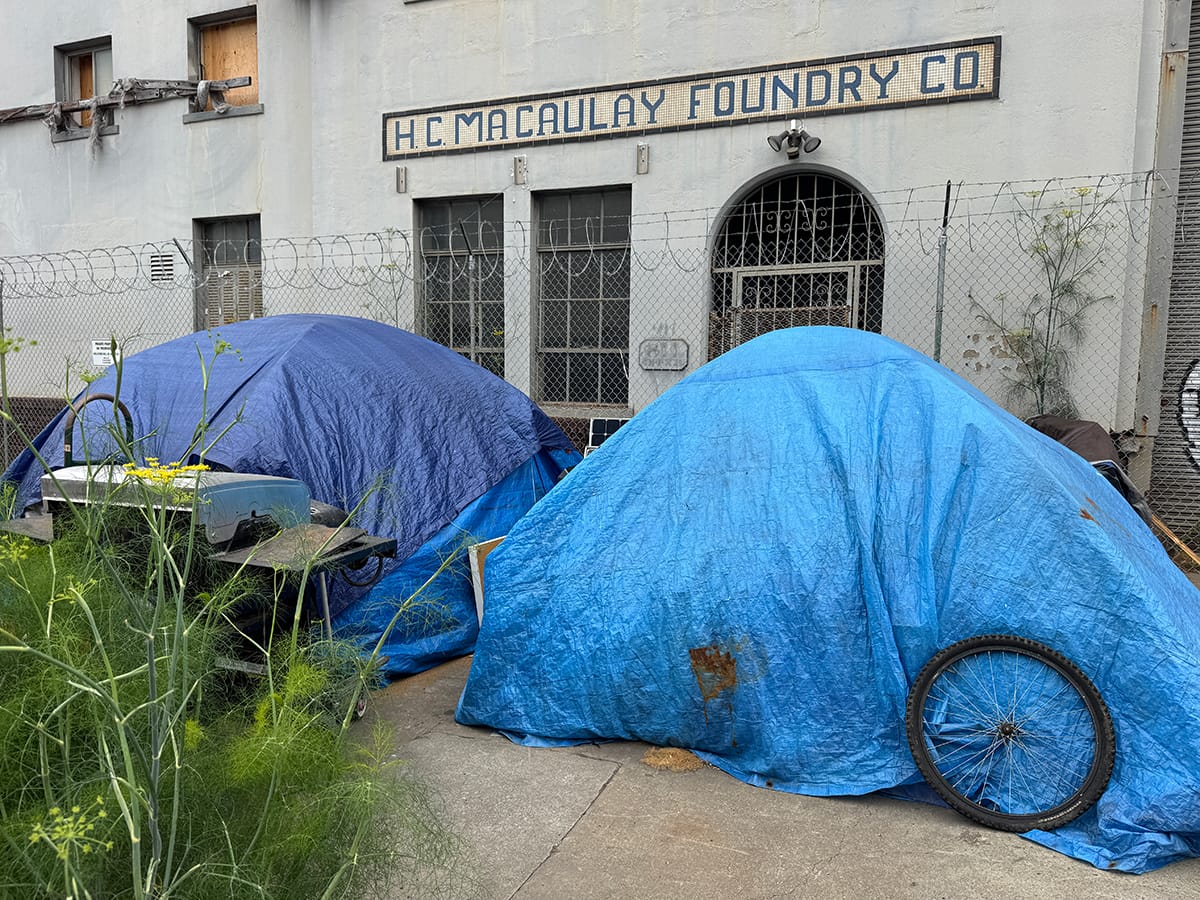
Other speakers pointed to a recent city audit that found room for improvement in the city's Homeless Response Team and noted that there aren't enough beds for everyone living on Berkeley streets.
"No way should you do this item. You should let the people stay there, provide services, treat them like they're human beings," said former Berkeley Councilwoman Cheryl Davila. "We know you don't care about humanity because you don't give a shit about Palestine and the inhumane treatment that's going on over there."
More than once throughout the night, Davila sparred with Mayor Adena Ishii when Ishii asked her to keep her comments focused on the topic at hand.
" It's sad that y'all just sit there with a dumb grin on your face because you actually don't give a crap about anybody," Davila said.
"Do you have comments on this item?" Ishii asked, breaking in.
"I am talking about the item and, I swear to God, if I could, I would slap you right across the face — because you're being so rude," Davila shouted at her. "So rude."
"It's not rude of me to keep you on track," Ishii said.
"It is rude," Davila responded, emphatically. "Because my track is not your track. And I can say what I want when I want to say it."
Berkeley mayor: "We recognize that we are in a crisis"
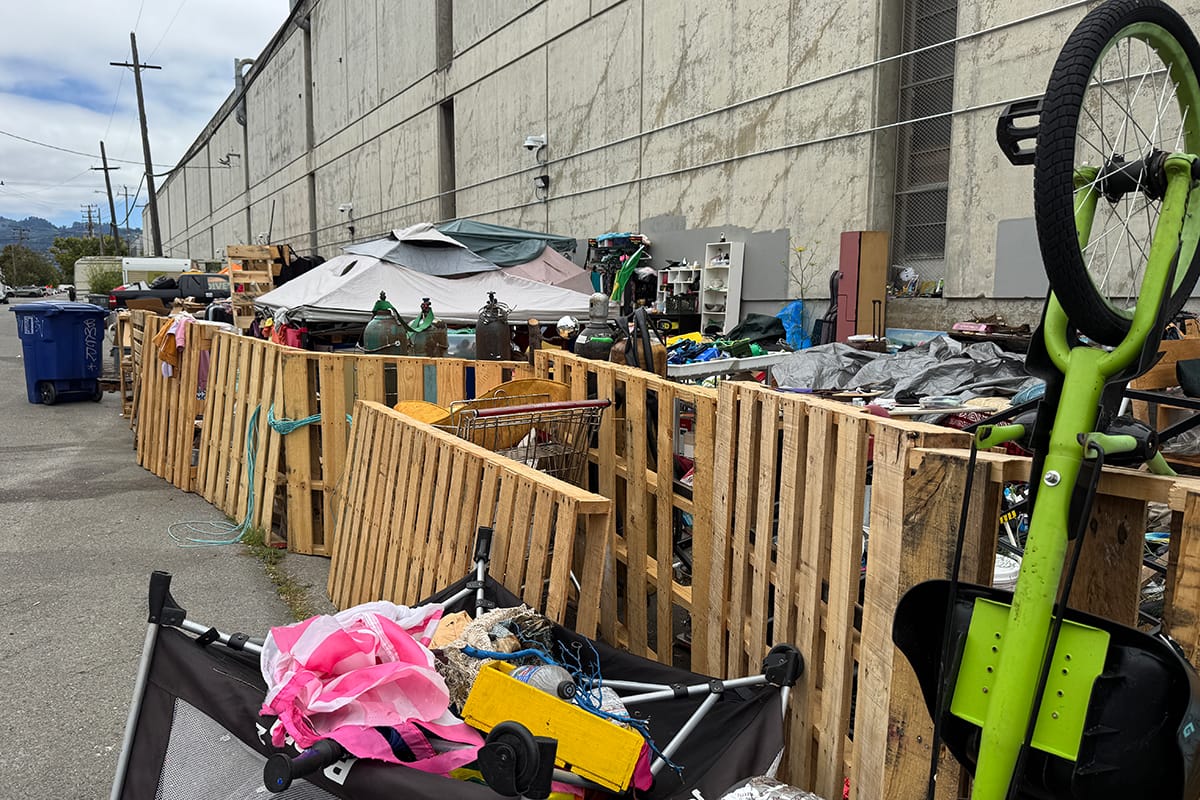
Once the matter went back to council for deliberations, which were brief, City Manager Paul Buddenhagen explained that, if approved, the item would return to officials for a final vote next week, and that Homeless Response Team staffers would be visiting the block to offer what help and services they could.
"Obviously, the problem we have right now is we do not have sufficient housing and shelter for the number of people who need it, which is why we have a homeless crisis," he said, "not just in Berkeley, but across the county and across the country."
Buddenhagen said the city is still looking for possible sanctioned encampment sites following a recent council referral.
And, while he said he could not get into details, he described Bayer as " one of our biggest corporate tax partners."
In addition to increasing Bayer's property taxes, the city emphasized it would save money on maintenance and service needs and reduce potential liability as a result of the Carleton Street conversion from public to private space.
(As of publication time, the city had not responded to a Scanner inquiry regarding whether it had used the approach before.)
"Bayer has paid the appropriate fees related to processing this street vacation," the city wrote in a staff report. "There is no negative fiscal impact to the City of Berkeley from adopting this ordinance."
Cogley, the Bayer spokeswoman, told officials that the company gives about $1 million each year to community organizations in addition to its property taxes, the result of a longstanding development agreement between Bayer and the city.
"We all deserve a safe place to live," she told officials. "I also need to make sure that there is a safe place for our people to work and that we can maintain the safety of the medicines that we produce."
Ultimately the Berkeley City Council voted 8-0, with an abstention by Cecilia Lunaparra, in favor of the street vacation.
Later in the night, Berkeley officials celebrated the news that the Alameda County Board of Supervisors had pledged to use 80% of its Measure W revenue — estimated at about $170 million each year — to address homelessness.
"We recognize that we are in a crisis," said Mayor Ishii, adding that she and Councilman Igor Tregub had attended the board meeting earlier that day to advocate for Measure W funding. " This is a really serious issue and I want to thank everyone for coming to make comments about that. I think it is so important that we're considering our unhoused population and the impacts that our decisions have on them."
Carleton residents: "Just out here trying to survive"
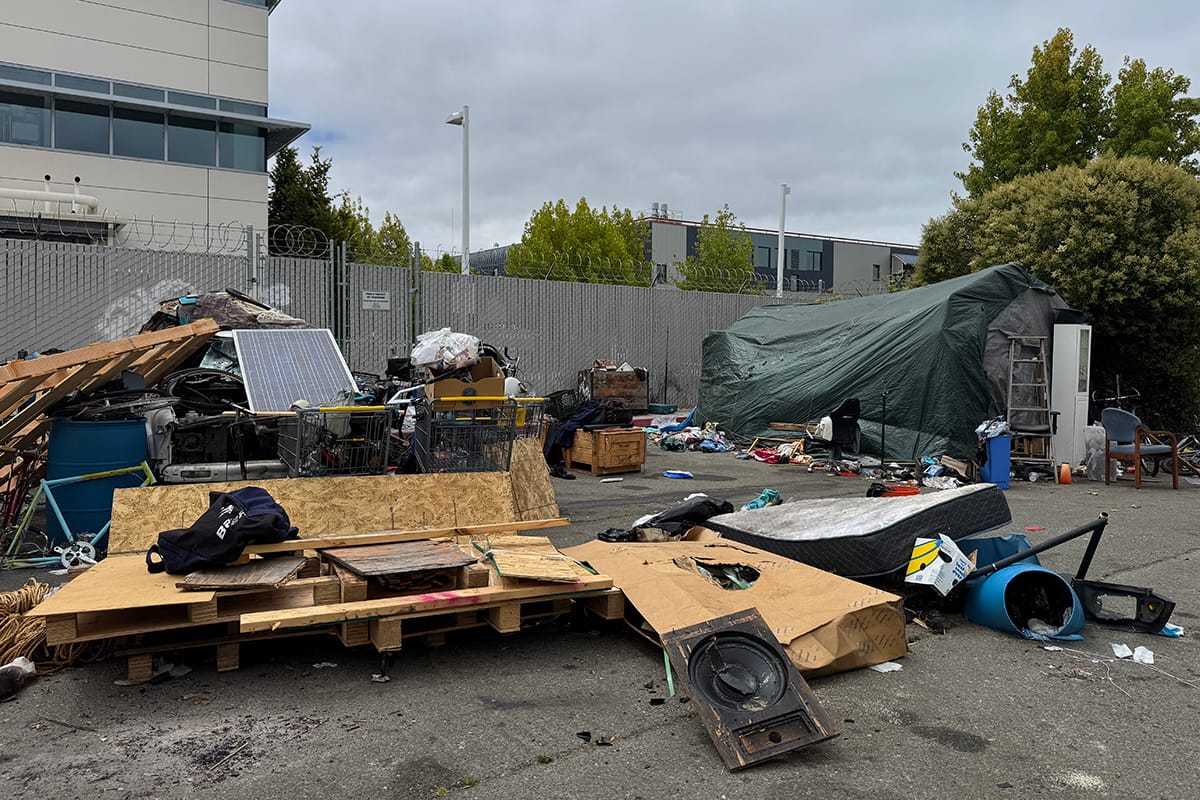
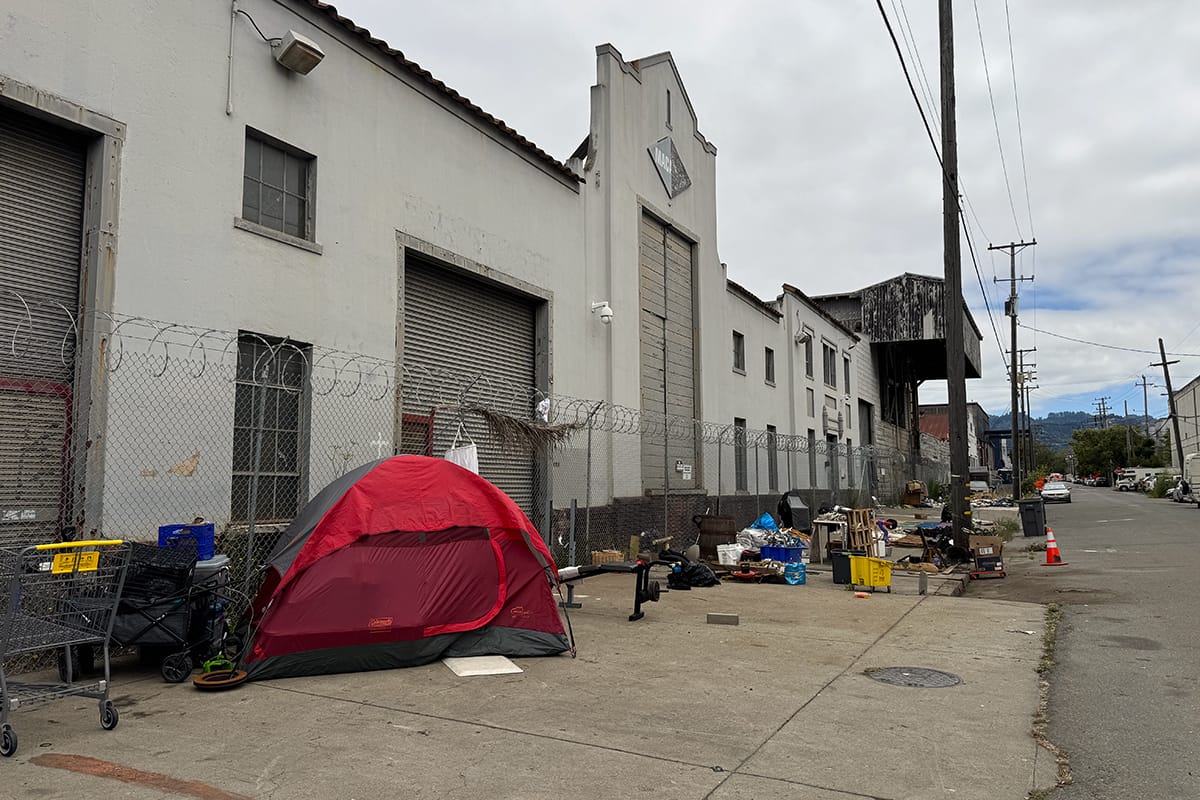
Part of the homeless encampment on Carleton Street west of Seventh Street near Bayer on Wednesday, July 23, 2025. Emilie Raguso/TBS
On Wednesday morning, it was calm on the dead end of Carleton Street where a handful of tents and several vehicles appeared to be inhabited.
Some of the sites were tidier than others. Only one person, working quietly on a project, was out and about.
Travonnie Stokes said he attended Tuesday night's City Council meeting to lobby for more help and communication from the city and Bayer alike.
He said he hadn't been surprised by the vote: He'd heard workers talking about plans to build a fence to restrict access to the area.
"The deal was sealed a long time ago," he said.
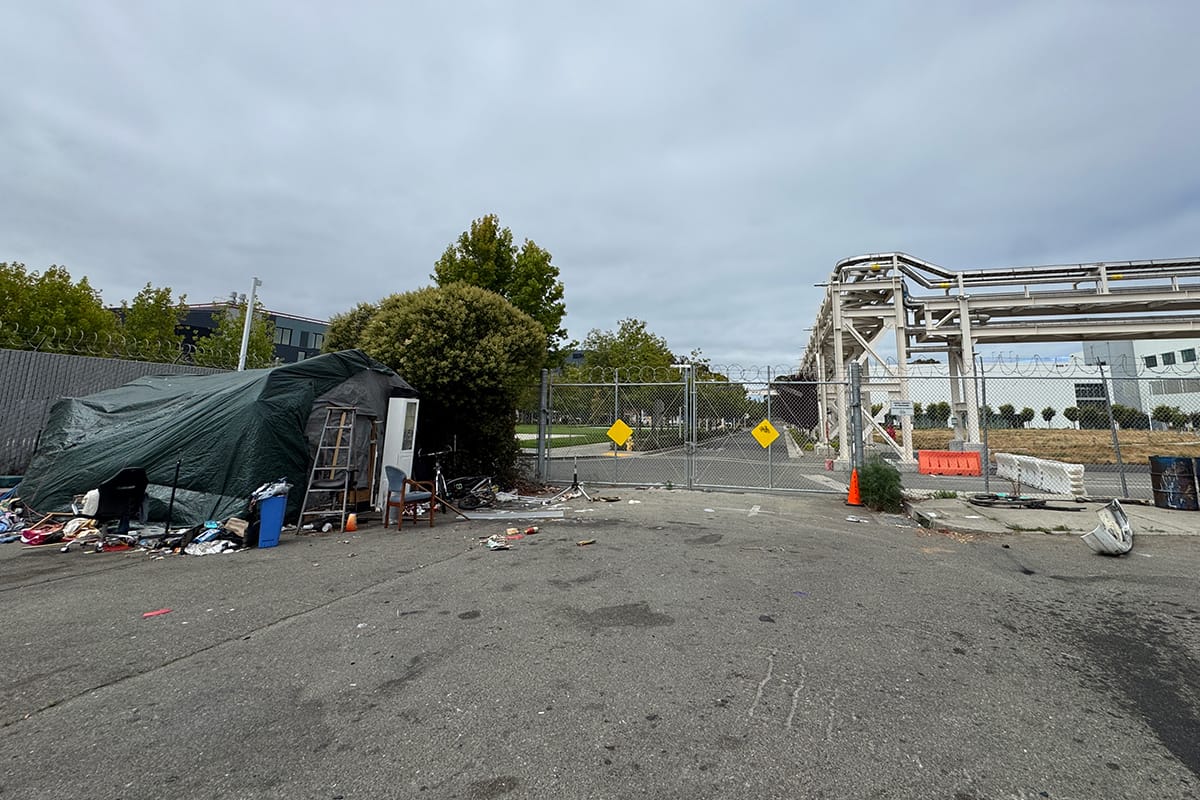
Stokes, who grew up in Vallejo, said he'd struggled with serious PTSD after being nearly killed in a shooting.
For a time, he'd been housed in a local motel, but he said there had been no services offered to residents and that he needed more support to get his affairs in order.
He said he hoped there might be some financial help once it came time to move.
"I want to regain stability in my life," he said. " I feel so much better when I have my kids."
Stokes said he'd felt ostracized when he lived in the motel and cut off from the support of his street community. He left after a falling out with his girlfriend.
He said the people staying on Carleton Street — where he'd been for about six months — enforced a set of rules and kept each other's behavior in check.
The only fires they allowed, he said, were for cooking and warming. They made sure they weren't blocking access for emergency vehicles. Theft among residents was a non-starter.
" Any troublemaking, you gotta go," he said. " We are just out here trying to survive, like anybody else."

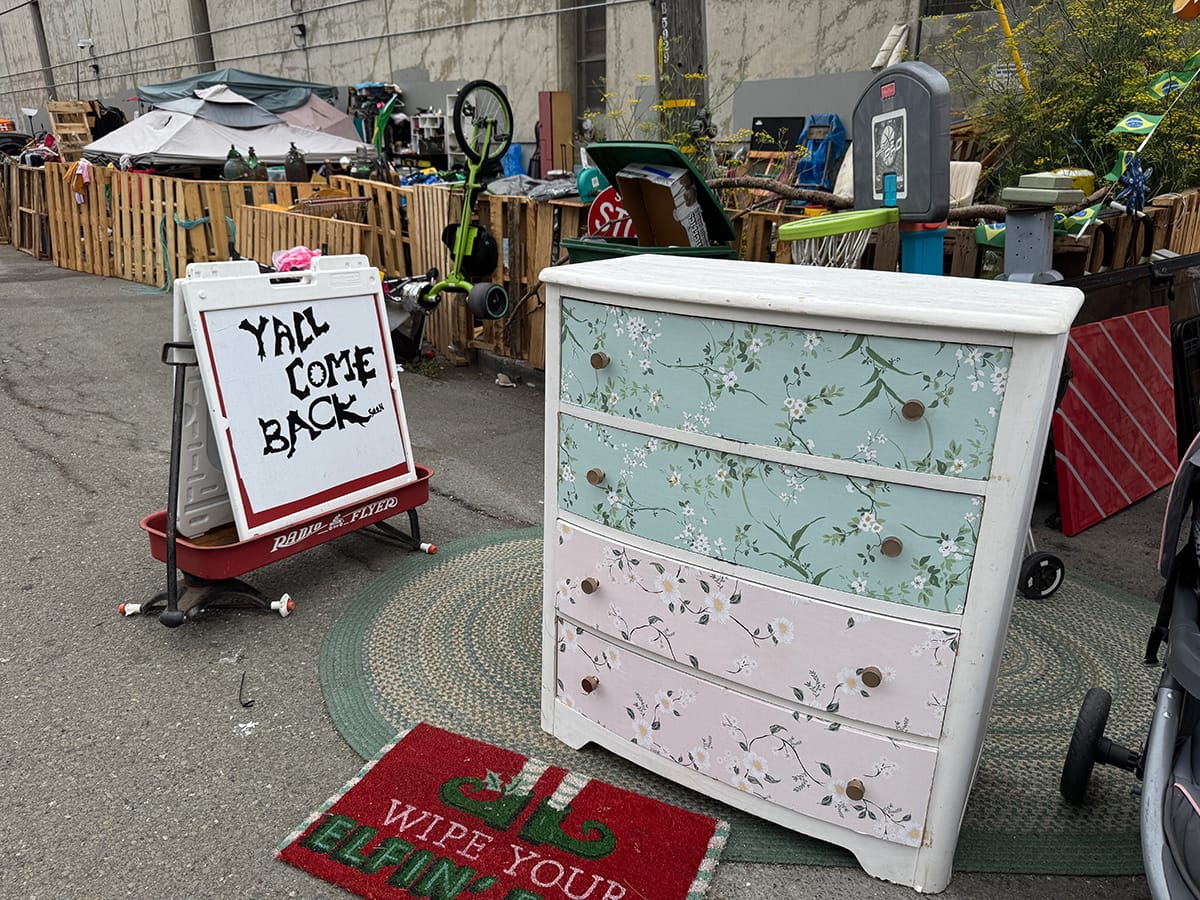
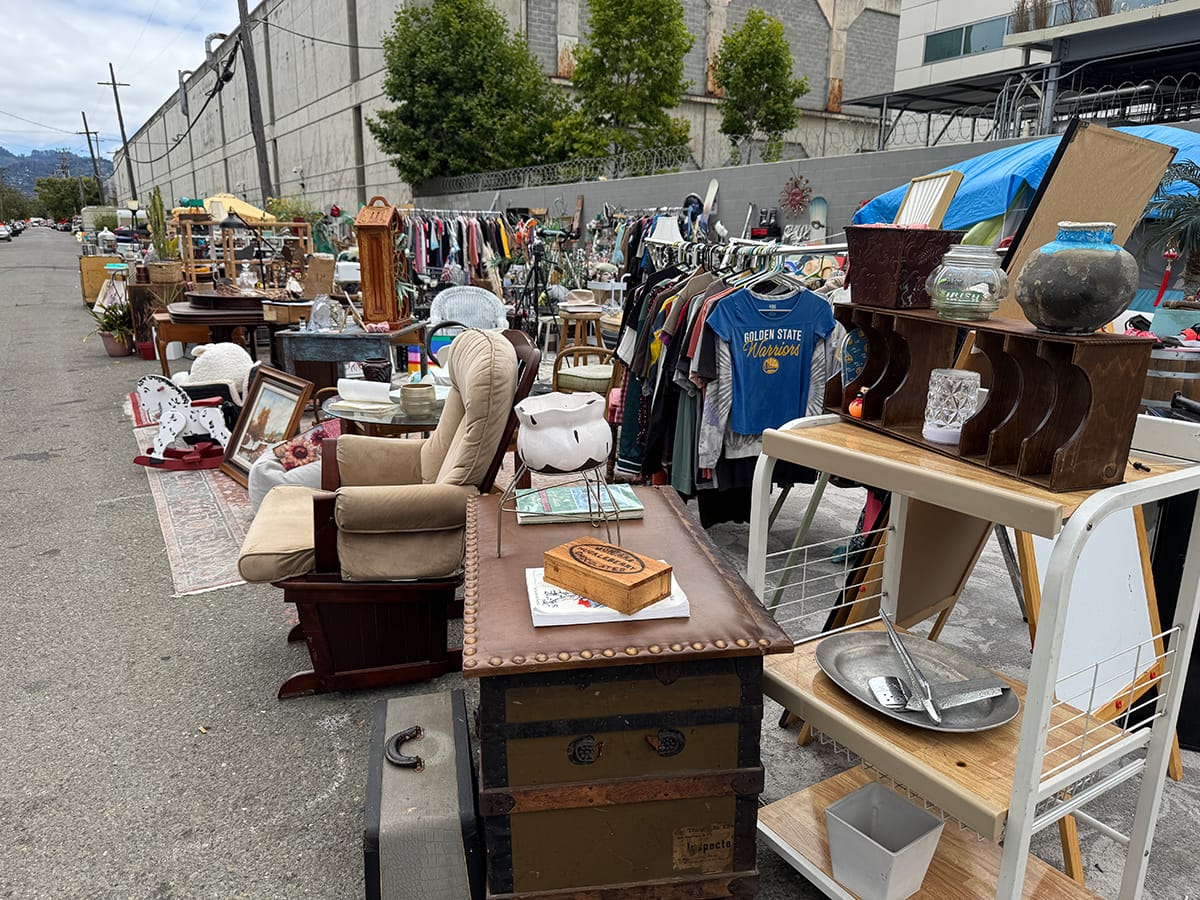
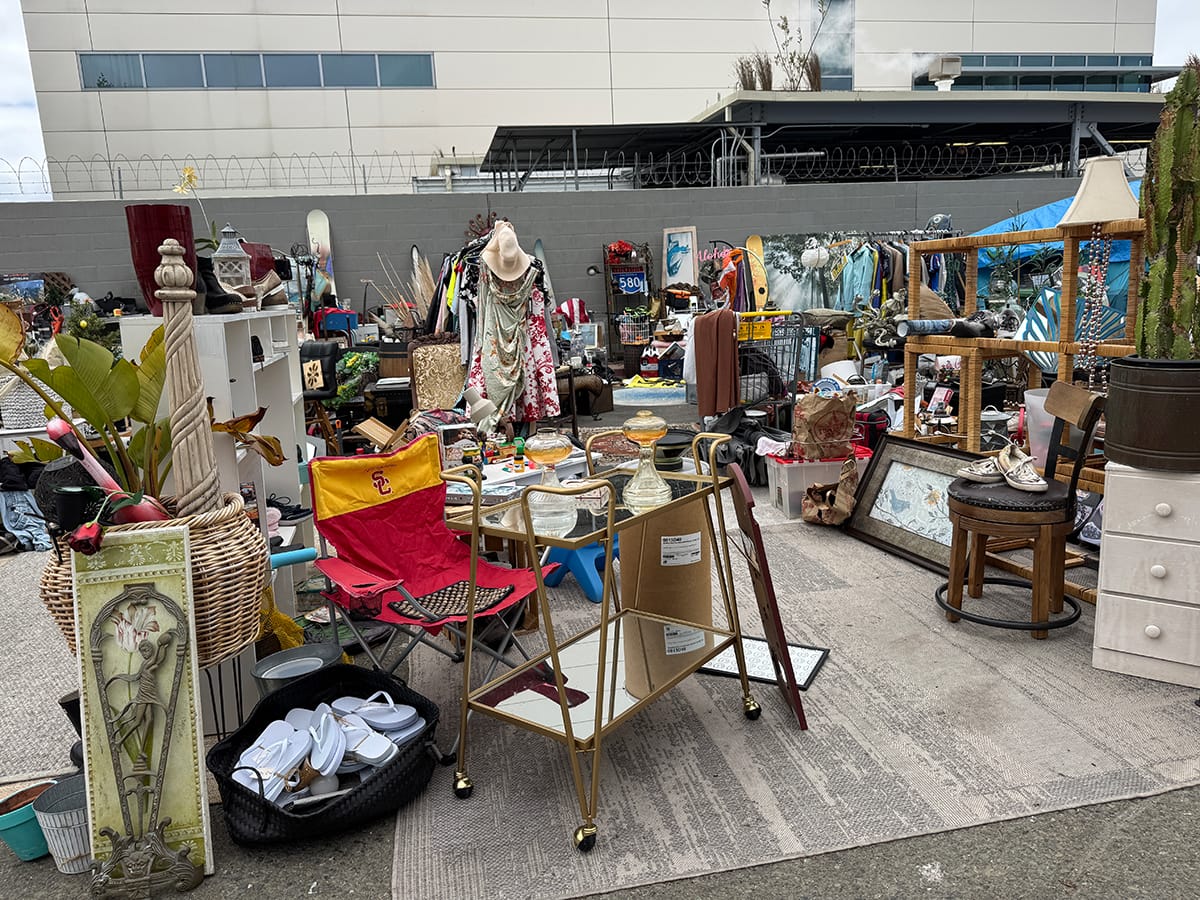
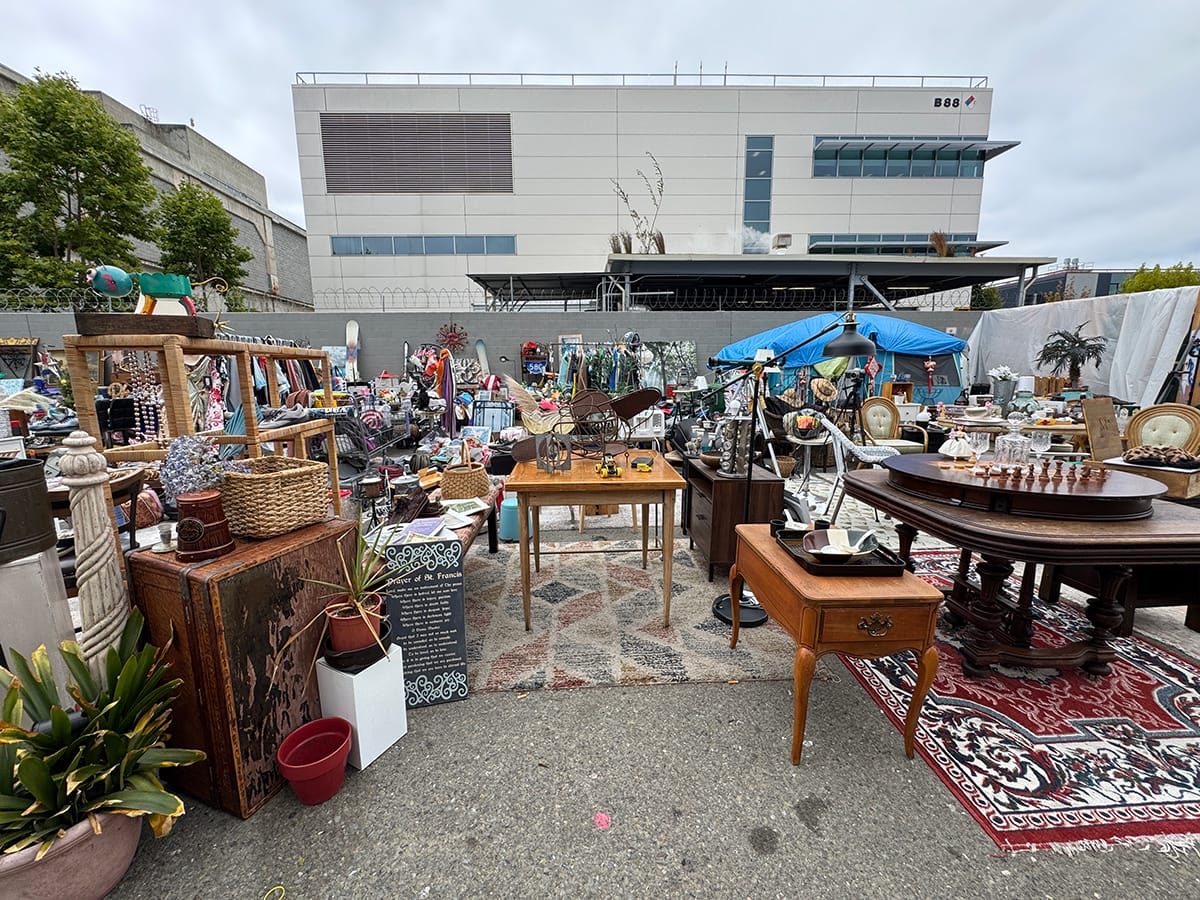
A portion of Cowboy's Buy, Sell and Trade on Carleton Street west of Seventh Street on Wednesday, July 23, 2025. Emilie Raguso/TBS
In addition to the scattered tents and parked vehicles, much of the block was taken up by Cowboy's Buy, Sell and Trade, an outdoor market of sorts made up of donated items and property recovered from the side of the road, said Cowboy, its purveyor.
Cowboy said he had lived on Berkeley streets for six years and now hopes to get enough money together to get to Florida, where his children live.
Over the years, he said, he'd stayed in different parts of town, always trying to keep his area clean and the public pathways clear for wheelchairs and other access.
" I moved a number of times," he said. "I try to listen to any of their ordinances."
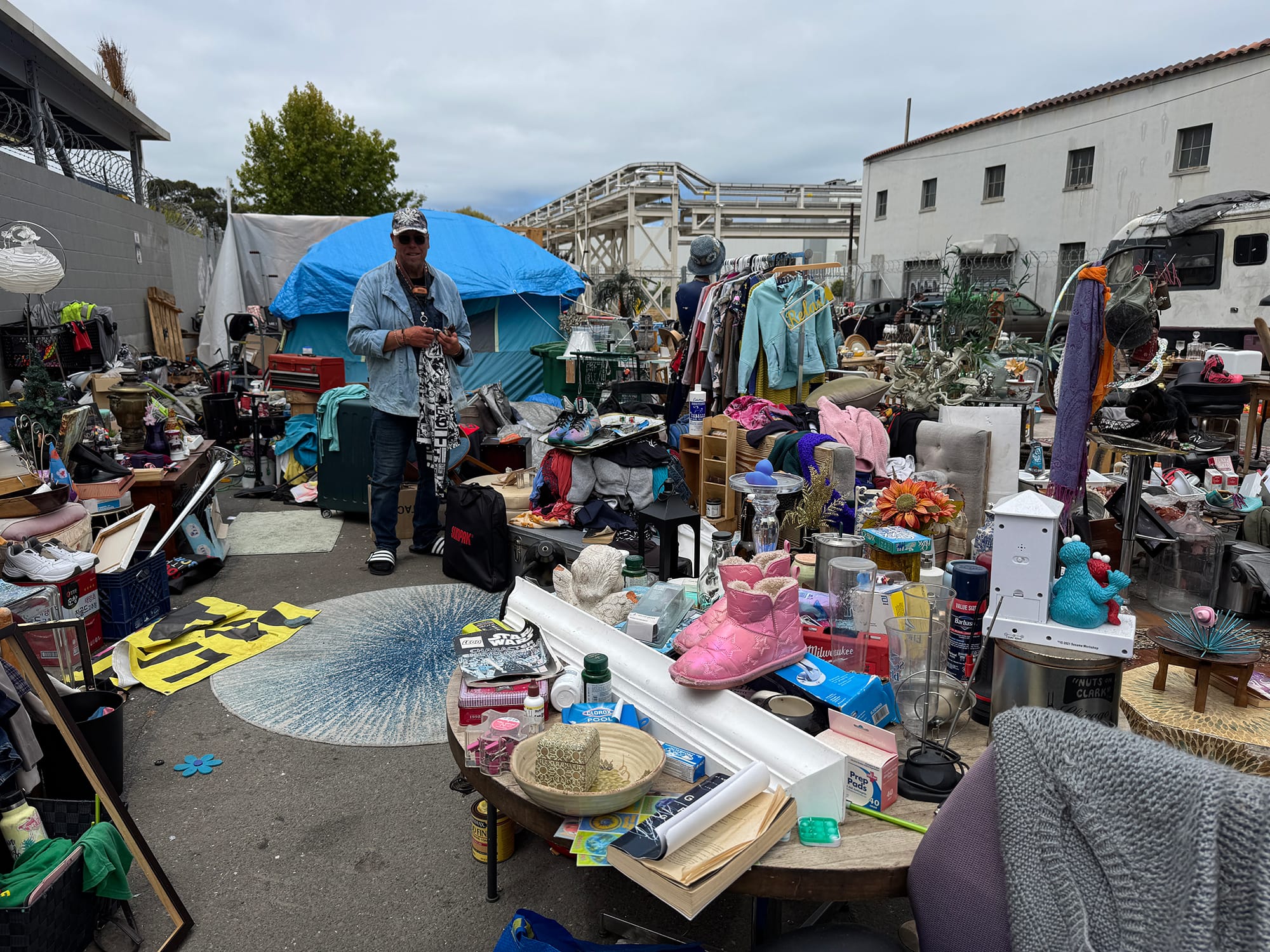
Still, he said, the city had repeatedly taken his property and thrown it away.
"We're talking about valuable things and it's just going to waste," he said. "And a lot of people, they like this, you know? We're in a place and time where people are looking to save money."
Read more about homeless camps in Berkeley.
Cowboy said he wished more people would take the time to get to know him and his neighbors before jumping to conclusions.
"There's really good people here," he said, describing one of his neighbors, who is devoted to reuse and recycling, in homage to her grandmother's tradition. "Right now, we're not bothering anybody, it seems like. There's no one that comes down here, other than us."


